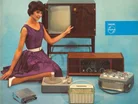Philips Q1 Results hit by $1.1bn Respironics Settlement

Royal Philips has reported a loss of $1.08bn for Q1 2024, blaming the results on a $1.1 billion settlement over claims that people who used their breathing devices were harmed by noxious gases and flecks of foam that lodged in their airways, sometimes for years.
Thousands of people contended in lawsuits they had been injured by popular Philips DreamStation machines. The settlement affects continuous positive airway pressure (CPAP) machines that people with sleep apnea and other respiratory conditions use at night to improve their breathing.
Philips admitted no fault in the settlement, including whether the devices caused the injuries, according to a financial report issued Monday.
The personal injury settlement follows a $479 million settlement reached in September over economic losses to the patients and medical equipment sales companies that financed replacement devices.
Philips also agreed to a consent decree earlier this year that forced the company to halt US sales of new devices until certain conditions are met.
Philips CEO Roy Jakobs says: “Patient safety and quality is our highest priority, and we have taken important steps in further resolving the consequences of the Respironics recall.
”The remediation of the sleep therapy devices for patients is almost complete, and the test results to date show the use of these devices is not expected to result in appreciable harm to health.”
Of the company’s results in other areas, he said: “We started the year in line with our plan, with order-intake growth outside China turning positive, and strong margin improvement.
“Supported by key innovation launches and strong focus on our execution priorities, we remain confident in our performance improvement plan for 2024.
Philips: Making the switch from consumer electronics to healthcare
Once known primarily as a consumer electronics company making radios, TVs and light bulbs, Dutch conglomerate Philips has successfully transitioned into a leading provider of healthcare technology products and solutions.
Philips' Healthcare division is now one of the world's largest manufacturers of imaging equipment like MRI and CT scanners, as well as patient monitoring devices. Their top selling product lines include:
- Ingenia MRI Scanners. These include its flagship 3T and 1.5T MRI systems for advanced medical imaging, with over 10,000 units installed globally.
- EPIQ Elite Ultrasound - Premium ultrasound platform with anatomical intelligence technology for advanced clinical imaging.
- IntelliVue Patient Monitors - Philips' patient monitoring solution with smart clinical measurements and analytics.
Philips has grown its healthcare business unit to employ around 77,000 people across 30 manufacturing plants worldwide. Major production facilities are located in the Netherlands as well in Ohio and Pennsylvania in the US.
Its transition to healthcare began in the late 1990s, as Philips doubled down on its healthcare and lighting technology divisions through major acquisitions, such as Intermagnetics MRI in 2005 and Respironics sleep/respiratory devices in 2007. Philips fully split-off its lighting division in 2016 to focus solely on healthcare technology.
With global healthcare spending continuing to rise, Philips has strategically positioned itself as an innovation leader in imaging systems, patient monitoring, and data-driven healthcare solutions for the hospital and homecare markets.
- Pfizer, GSK & CVS Health: This Week's Top Healthcare StoriesSustainability
- Augmented Reality can Transform Hospital Infection TrainingTechnology & AI
- How can AI Transform Recruiting in the Healthcare Sector?Technology & AI
- Pharma, AI & the US: This Week's Top Healthcare StoriesTechnology & AI



